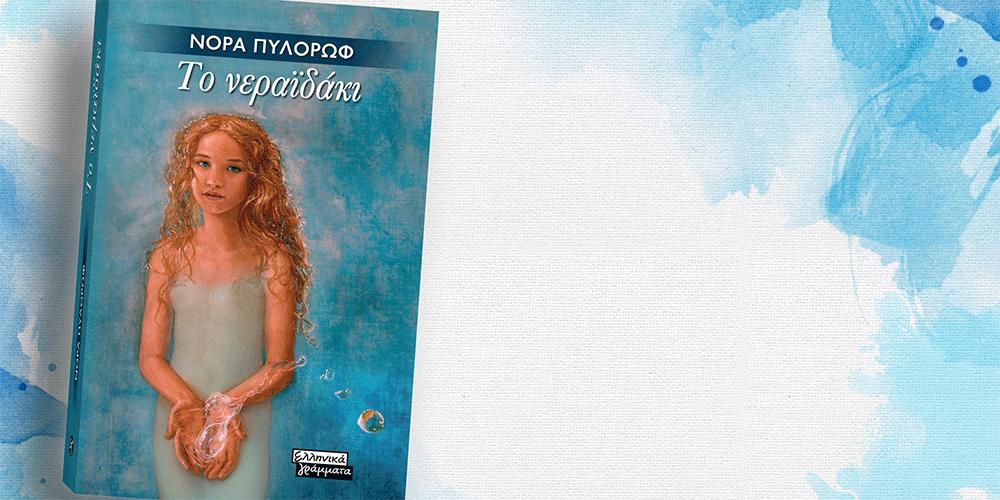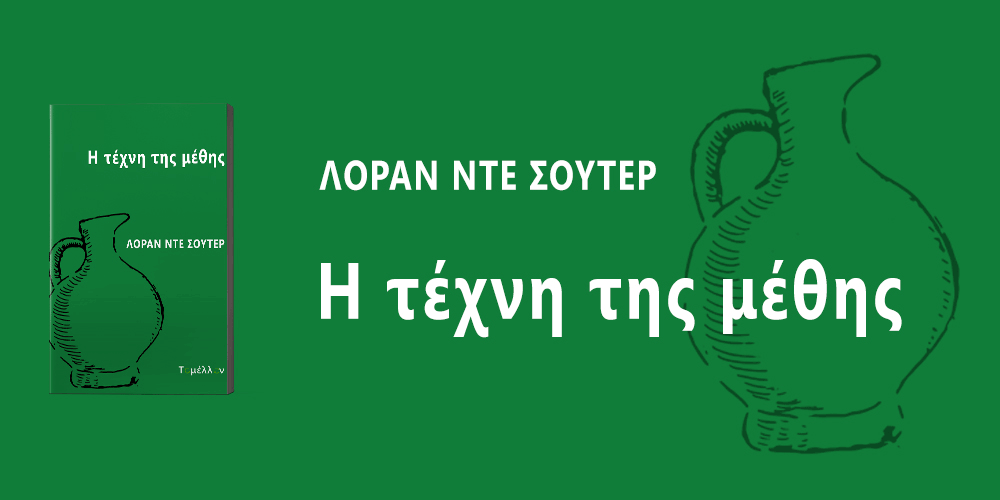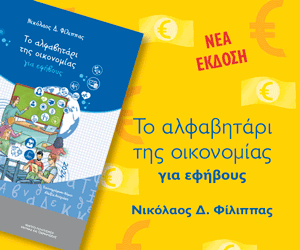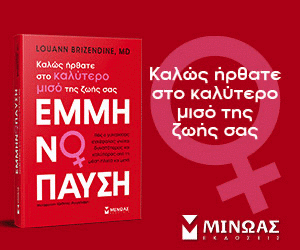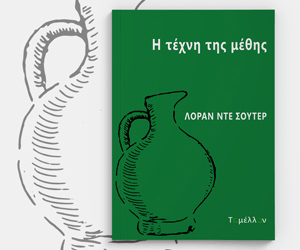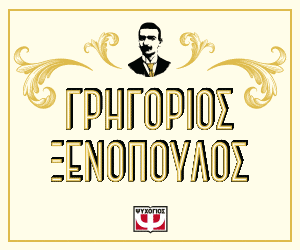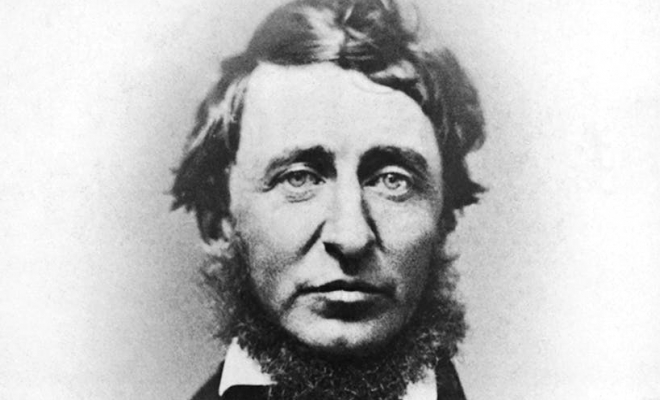
***Απαγορεύεται από το δίκαιο της Πνευμ. Ιδιοκτησίας η καθ΄οιονδήποτε τρόπο παράνομη χρήση/ιδιοποίηση του παρόντος, με βαρύτατες αστικές και ποινικές κυρώσεις για τον παραβάτη***


Attempting to talk about Henry David Thoreau and science, one has to consider different aspects of Thoreau’s personality. Naturalist, transcendentalist, poet and prose writer, all these along with the mistaken characterization of the Luddite in a broad sense commonly used when referring to his relation to technology.
After having celebrated the bicentennial of Thoreau around the world and at Concord in 2017, the idea to write a Thoreauvian philosophy of science became more and more tempting to me. I found that regarding him as a Luddite when it comes to technology is simply holding us back from being able to see his relation to pure science. And the term “Luddite” itself, may be misleading when it comes to Thoreau’s outlook on the world.
It is generally acknowledged that Thoreau felt the necessity to resist anything which transforms human life into a normative activity and detaches human beings from nature. He could see that many of his contemporaries were prone to inhumane behaviors such as wars, slavery etc. and the practice of scientific discovery, along with the applications of technology, had somehow the potential to follow a similar pathway.
Writing in his Journal, Thoreau states that, “Science is inhumane. Things seen with a microscope begin to be insignificant.”[1] This statement is a moral judgment, not a phrase which directly leads to epistemological conclusions about the nature of reality. Thus, it would be unfair to base Thoreau’s approach to science on a sentence like the one appearing above. To be fair though, perhaps Thoreau feared that the use of science and technology would feed the arrogant spirit of human beings and could lead to the underappreciation or even, destruction of nature. We could not deny that, to some extent, this fear has come true given the growing negative impact of human activities on the environment leading to climate changes around the globe.
Thoreau’s admiration for pure scientific knowledge cannot be debatable. We find him praising science in the “Natural History of Massachusetts”, saying that, “Science is always brave, for to know, is to know good; doubt and danger quail before her eyes.” And given that he declares to be a naturalist himself, he notes in his Journal: “One studies books of science merely to learn the language of naturalists—to be able to communicate with them”[2], showing the strong connection between science and naturalism. In Thoreau’s view, both science and naturalism, if done well, will lead without a doubt to the same truth, the transcendental and universal truth.
One could view science and technology as an extension of the organization of the world provided by the transcendental self. They are not merely independent activities, for they derive from an inner urge of the human intellect to deepen its understanding and discover different pathways of knowledge. They are tools with which one gets a privileged access to the complicated systems of nature and uncovers its secrets, realizing at the same time, that he or she is undoubtedly a part of it.
So what does understanding science mean for Thoreau? Writing to his cousin, George Augustus Thatcher, whose son has shown an interest in engineering, Thoreau clearly articulates his thesis on scientific and technological knowledge: “It should be a part of every man’s education today to understand the Steam Engine.”[3]
Let us as well remember the part of Walden[4] where Thoreau says: “Which would have advanced the most at the end of a month, -the boy who had made his own jackknife from the ore which he had dug and smelted, reading as much as would be necessary for this – or the boy who had attended the lectures on metallurgy at the Institute in the meanwhile, and had received a Rogers penknife from his father?”
Thoreau felt that knowledge of science and technology (such as the function of the Steam Engine), should be a part of the general training of the educated man. Such learning therefore, should not just be a privilege of an elite of scientists, but rather an essential tool of the everyday man’s intellectual equipment in order to lead a life worth living.
Thoreau continues his letter asking “What right has a man to ride in the cars who does not know by what means he is moved?”, defending here his revolutionizing resistance to using without knowing, which is unarguably, using without understanding. This is because lack of understanding forces us into acting mechanically, responding automatically to the stimuli offered to us by the machines, in the end, jeopardizing becoming “tools of our tools”.[5]
It seems that Thoreau would suggest us all to become everyday life engineers. This is the pathway that we should follow if we wish to prevent ourselves from becoming “tools of our tools”. Thoreau would defend that we do not deserve to use the technological inventions while being ignorant of their structure and nature, introducing a merit/value– oriented approach to knowledge which has its origins in the epistemological beliefs of Plato [6]. In that sense, applying Thoreau’s idea to our times, we should all become everyday life computer engineers as well, and study how a software functions before buying a computer or a smartphone, otherwise we are not worthy of all the benefits those technologies have to offer.
Thoreau’s theory of science is not far from his approach to nature and in the end, to life itself. He seeks “to live deliberately”, to understand the vital, the organic things in life, those that are truthful in his transcendental way and free from what is not pure and truly alive. His objective is “to front only the essential facts of life” and “to live deep and suck out all the marrow of life, to live so sturdily and Spartan-like as to put to rout all that was not life, to cut a broad swath and shave close, to drive life into a corner, and reduce it to its lowest terms…” [7] If learning science and understanding technology can be a part of this process, then Thoreau would certainly not be disapproving.
But for Thoreau, there also must be enough room for imagination. Opposing most of the prevalent paradigms, Thoreau suggests a connection between science and imagination. He asserts that, “If there is not something mystical in your explanation— something unexplainable— some elements of mystery, it is quite insufficient. If there is nothing in it which speaks to my imagination, what boots it? What sort of science is that which enriches the understanding but robs the imagination?”[8]
Notwithstanding the archetype of the strictly rational scientist western culture still presents to us, it is not difficult to recognize that imagination can be crucial for scientific discovery. Years after Thoreau’s death, Albert Einstein emphasized the role of imagination: “For knowledge is limited, whereas imagination embraces the entire world, stimulating progress, giving birth to evolution. It is, strictly speaking, a real factor in scientific research.”[9] The scientist would be restrained if he could not take advantage of his imagination when it comes to suggesting his solutions to the scientific puzzles. Enriching the scientific understanding, goes along with the capacity to use imagination as a boosting element of discovery.
Thoreau was not a scientist himself, yet he could fathom the need of the scientist for enough imagination to aid in creativity and in freedom from strict linearity in the scientific process. Being able to liberate one’s mind and to abandon paradigms and prejudices if necessary, greatly aid in scientific discovery. Imagination appears to be a way to break the chains of our biases, or at least, to be able to recognize the difference between the biased state and a freer state of imagination.
Scientists, however, along with many philosophers of science, might well argue that having mystical elements in the scientific process by definition makes it less scientific, if not, not scientific at all. The objective of science is to seek clear explanations or at least, falsifiable ones if one prefers to follow Karl Popper’s theory [10]. In other words, it is commonly held that science’s role is to elucidate the world and not to give answers with mystical or supernatural foundations.
In defense of Thoreau, Paul Feyerabend was against the restriction of science to one and only methodology that excluded anything. Why not add imagination to Feyerabend’s “anything goes”[11] game? It could broaden our understanding in a vaguely holistic way which could be considered to be quite valuable.
In this sense, it can be suggested that science turns out to be opportunistic, taking advantage of the various benefits different logics and tactics may be able to provide, without necessarily committing to one strategy. As a naturalist and not a scientist, Thoreau, would probably have supported such a position.
How far can you carry your practicalness? How far does your knowledge really extend?, Thoreau asks in his Journal.[12] Should this phrase discourage young scientists? Or is it just a warning not to regard scientific and technological knowledge as the ultimate forms of knowledge? Perhaps Thoreau is urging us here not to limit ourselves thinking that the only avenues to rigorous inquiry are those provided by scientific research alone.
“Knowledge does not come to us by details, but in flashes of light from heaven”, Thoreau says in Life without Principle. Again, the unexplainable appears to provide explanations for the world, giving us sudden revelations. Albert Einstein would approve of this, since he noted that “I believe in intuitions and inspirations. I sometimes feel that I am right. I do not know that I am… [but] I would have been surprised if I had been wrong.”[13]
Thoreau, moreover, is aware of the problems which arise when contemplating the limits of our cognition. We can see his transcendental skepticism in a passage from Walking, where he writes: “A man’s ignorance sometimes is not only useful, but beautiful—while his knowledge, so called, is oftentimes worse than useless, besides being ugly. Which is the best man to deal with—he who knows nothing about a subject, and, what is extremely rare, knows that he knows nothing, or he who really knows something about it, but thinks that he knows all?”
Uncharitably but perhaps accurately, we might note that a percentage of scientists fall into the second category. They certainly do know something, but may end up thinking that they know it all or at least, that their way of understanding and elucidating the world is the ultimate one. Thus, they might not be capable of recognizing epistemological concerns regarding the limits of knowledge. Thoreau is again here warning us not to fall into this cognitive trap.
Thoreau writes in his Journal: “As it is important to consider Nature from the point of view of science remembering nomenclature and system of men, and so, if possible, go a step further in that direction, so it is equally important often to ignore or forget all that men presume they know, and take an original and unprejudiced view of Nature, letting her make what impression she will on you, as the first men, and all children and natural men still do.”[14] Thoreau places science next to his naturalistic, unprejudiced view and they turn out to be “equally important”, as he states.
If anything, Thoreau is without a doubt, a non-anti-science philosopher. His philosophy of science is nature-oriented with transcendental elements which are in accordance with his general philosophical standpoint. It is at the same time, a humanistic philosophy of science recognizing the dangers lurking in the blind use of technologies and attributing value to the knowledge of how technologies function. Thoreau does not want science and technology separated from our everyday life, he does not treat them as entities apart from the humankind but rather he considers them to be part of the same natural and indeed social system, trying to come up with ways with which they could improve our process of understanding of the world and in the end, of ourselves.
Bibliography
Einstein, Albert. Einstein on Cosmic Religion and Other Opinions and Aphorisms. 1931.
Feyerabend, Paul. Against Method. 1975.
Thoreau, Henry David. Life Without Principle. n.d.
—. The Journal 1837-1861. New York Review Books, 2009.
—. Walden or Life in the Woods. n.d.
—. Walking. n.d.
Walls, Laura Dassow. Henry David Thoreau A life. Chicago University Press, 2017.
[1] Journal, 1 May 1859.
[2] Journal, 23 March 1853.
[3] Letter to George Augustus Thatcher, 9 February. Concord, Mass. 1849.
[4] Walden or Life in the Woods, Chapter “Economy”.
[5] “Men have become the tools of their tools. The man who independently plucked the fruits when he was hungry is become a farmer”. Journal, 14 July 1845.
[6] “αὕτη γὰρ μόνη ἐστὶ κακὴ πρᾶξις, ἐπιστήμης στερηθῆναι”, 345b, Protagoras, Plato.
Translation of the writer: “there is only one wrongdoing, to be deprived of knowledge”.
Implications for a relation of knowledge to morality have their origins in Plato.
[7] Walden or Life in the Woods, Chapter “Where I lived and what I lived for”.
[8] Journal, 25 December 1851.
[9] Einstein on Cosmic Religion and Other Opinions and Aphorisms, Albert Einstein, 1931.
[10] For more: The Logic of Scientific Discovery, Karl Popper, 1934.
[11] For more: Against Method, Paul Feyerabend, 1975.
[12] Journal, 7 June 1851.
[13] Einstein on Cosmic Religion and Other Opinions and Aphorisms, Albert Einstein, 1931.
[14] Journal, 28 February 1860.

Ακολουθήστε τo Literature.gr στο Google News και μάθετε πρώτοι όλα τα νέα για τον πολιτισμό και την επικαιρότητα από την Ελλάδα και τον Κόσμο.





